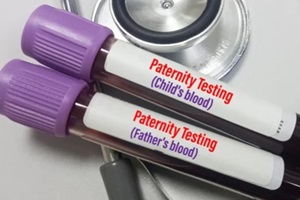 What happens to the children afterward may be unclear when conflict arises in a relationship. This is especially true for fathers, who traditionally do not have a full understanding of their paternal rights during divorce, separation, or child custody disputes.
What happens to the children afterward may be unclear when conflict arises in a relationship. This is especially true for fathers, who traditionally do not have a full understanding of their paternal rights during divorce, separation, or child custody disputes.
As the father, you have rights as you navigate the legal processes of determining custody, visitation, and more for your children.
Here is a resource highlighting some of the solutions available to you, as well as ways in which you may legally exercise your rights as a father for the children’s best interest.
What Are Legal and Physical Custody?
Legal custody is the right to make decisions that affect the child, such as where they attend school and the medical procedures they receive. This right is granted with paternity by Maryland law.
Physical custody refers to the parent the child lives with and with whom they spend the most time. The parent with primary physical custody covers most of the child’s living expenses.
What Factors Are Considered in a Custody Decision?
Many elements are considered during custody determinations. The current arrangement is considered if the parents are separated at the time of the court case.
The court analyzes the time spent with each parent, their living situations, income, and the parents’ histories concerning the child. In some cases, the child’s choice is documented for further consideration.
What Are the Types of Custody?
Custody can be joint (shared by both parents) or solely, allowing for co-parent visitation. To qualify as joint physical custody, overnight visits must be at least 35% of the year for both parents, and both must contribute to the child’s financial needs.
Parents may have joint or sole legal custody and joint or sole physical custody, as described above.
Can Custody Change?
Petitions can be submitted to the court for a change in the custody agreement, but the petitioning parent must prove the change will benefit the child, as these agreements are ruled with their best present and future interests in mind.
After reviewing the petition and situation, the court is not required to alter the custody order.
While in My Custody, Can I Make Decisions for My Child?
 Any decision that affects a co-parent or the child’s future cannot be made solely by one parent during their custodial time. In some cases, these actions can be a reason to reconsider the custody arrangement.
Any decision that affects a co-parent or the child’s future cannot be made solely by one parent during their custodial time. In some cases, these actions can be a reason to reconsider the custody arrangement.
Examples include moving to a new location with the child or leaving the country.
How Much Visitation Time Can I Have?
Visitation is based on each family’s situation and the child’s best interest. Some restrictions that could limit visitation include mandates against unsupervised visits, no overnight visits, or other specific obligations. These requirements will be clearly defined in the court custody ruling.
Can Visitation Be Denied?
Without a direct court ruling, the visitation rights of a legal father cannot be denied.
Do I Have to Pay Child Support?
According to Maryland law, one parent must provide child support to the other; gender is not considered in this determination. However, if the parents share custody, they will support the child financially.
What Unmarried Fathers Should Know
While many of the above rights are common, they are not guaranteed for individuals without established legal paternity. The following is an overview of common questions for unmarried fathers or those without legal paternity.
Is a Birth Certificate Signature Necessary?
No father must sign the birth certificate at the time and location of birth. However, without the signature, the man does not have legal authority over the child and gives up his paternal rights.
How Do I Establish Fatherhood?
The mother of the child’s husband is presumed to be the child’s father and is listed on the birth certificate with a signature.
Fathers who are not married to the mother can claim paternity by signing an affidavit of paternity, getting DNA testing, amending the birth certificate with verified proof of parenthood, or adopting the child to give them legal rights.
What Can I Do if My Paternity Is in Question?
 A DNA paternity test is an easy and effective way to prove your paternity. The court will verify the results and amend any legal determinations promptly.
A DNA paternity test is an easy and effective way to prove your paternity. The court will verify the results and amend any legal determinations promptly.
What Is Paternity Fraud?
Paternity fraud occurs when the legal record is incorrectly filed. This could occur if a mother knowingly claims the wrong person as the father or refuses to participate in properly declaring the birth father as the paternal figure.
Consult With The Father’s Rights Experts at Milstein Siegel
Fathers may face difficulties during the legal challenges associated with divorce, child custody, visitation, and child support agreements. However, they have paternal rights that must be upheld to ensure a fair judgment.
If you are facing a challenge and need help defending your paternal rights, be sure to approach the issue with the help of a legal team.
The Milstein Siegel attorneys help fathers defend their rights and secure fair representation and consideration during legal disputes. Contact Milstein Siegel to schedule a consultation.
